Swiss societies in California work to maintain cultural heritage
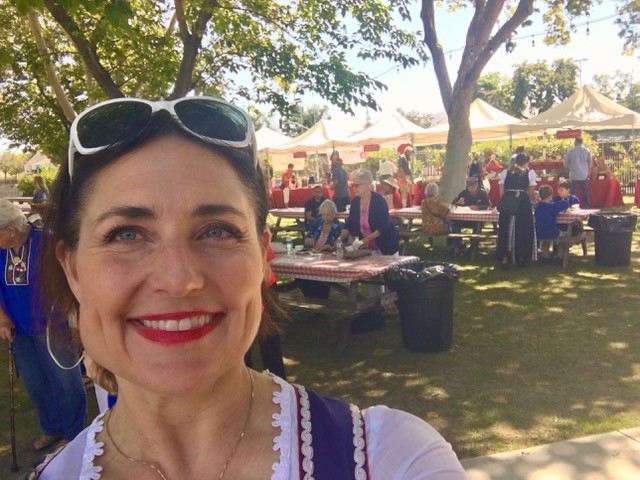
Swiss societies were once a central point of contact for new arrivals in a country. Today they thrive on a desire to maintain traditions. Diane Wagner is convinced that they can enter a new age. We met her in California.
At Swiss Park in Newark, California, a parade is in progress. The flags of the 26 cantons are flying, cowbells are ringing. This is how the United Swiss Societies of Northern CaliforniaExternal link (USSNC) celebrates Swiss National Day. Since its founding in San Francisco in 1910, this umbrella organisation of Swiss societies in Northern California has promoted Swiss culture. Bratwurst, spätzli and red cabbage are on the menu today; chocolate, wine and other typical products are on offer.
Diane Wagner is the organisation’s president. From the stage she announces the video that Ignazio Cassis, who holds the rotating Swiss presidency this year, has recorded for Swiss living abroad for Swiss National Day, August 1. Then the national anthem is played, and emotions run high. Wagner is happy. “I wanted this event to reflect the spirit and traditions of our country,” she says.
Born in Modesto, California, to Swiss parents, Wagner grew up in Central Valley, an agricultural area. “My father is from Stans and my mother from canton Uri,” she says. Later, when her father sits down at the table, Wagner tells her family story. “It was a farming family that couldn’t earn enough at home. Here in California, my parents’ generation found great opportunities after the Second World War.”
Swiss farmers dominated the dairy industry in the area at the time. The Bauhofer and Edelweiss dairies were institutions. “Several areas of today’s Silicon Valley were also once owned by Swiss farmers,” Wagner says. Hardly anyone remembers that today.
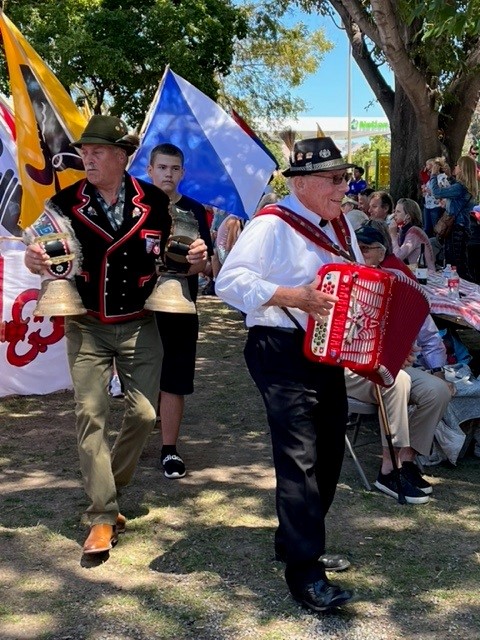
Like many of their compatriots of the same generation in California, her parents always belonged to a society. “My mother, who grew up in Fremont, was a member of the Älpler GruppeExternal link,” Wagner says, referring to a Swiss club that meets at Swiss Park in Newark. She wanted her children to become members too. “So I joined her.”
Over time, Wagner took on the role of her club’s delegate to the USSNC. She then became president of the organisation in 2015. “It was a lot more work than I expected,” Wagner admits. “But it was necessary to bring the organisation up to date.” She wanted to digitise everything and she created an email list and set up a new website. “We now have 1700 contacts,” she says. The challenge was to preserve the past while working on the growth of the USSNC.
Eleven clubs now belong to the federation. “When I arrived, we had only six,” she says. “Together we are stronger.” Many clubs are German-speaking. Wagner still sees growth potential in the clubs where Italian or French are spoken, such as the Monterey Swiss Club, which originates from Ticino, or the French-speaking Humboldt Swiss Club.
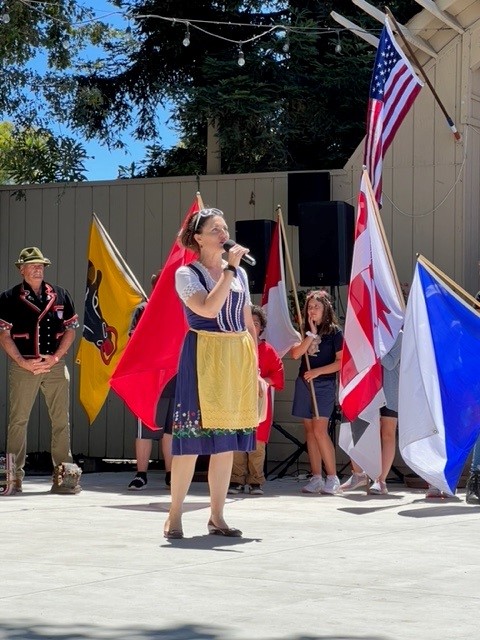
On National Day Wagner first met some young people with Swiss roots at the consulate. She told them about the Swiss who had founded the societies to maintain their traditions abroad. “I asked the young people if they were also members of a society,” she says. She also did some promotion for the clubs. “People speak the same language, cook traditional dishes and play Jass,” she says, referring to the traditional Swiss card game. Wagner appealed to the young people, saying their contribution mattered to ensure the continuation of this cultural heritage.
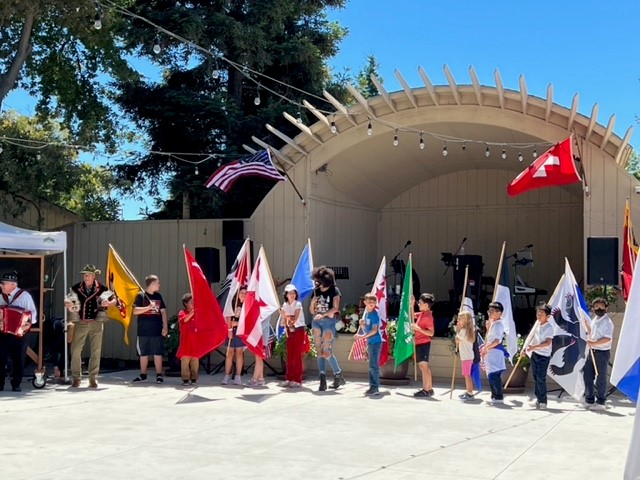
She also included the next generation in the celebration in Newark. A family fun zone was set up for children, with games and an exhibition about Swiss trains. One of the organisation’s main annual events for children is the Swiss Kids Camp, in which 90 children and 35 volunteers took part this year. For older children there is an online auction sponsored by Switzerland Tourism, among others. The prizes include stays in Swiss hotels or discounts on trips to Switzerland.
But it is not just involving the youth that poses a challenge. It also takes resources: volunteers and funding. “All this is only possible because the board, the societies and the whole community contribute,” Wagner says.
She has a vision for further growth. She wants to give more space to the individual members, to include them, to make them feel they belong. “There’s room for everyone in our club,” she says, pointing out that its motto is “one for all and all for one”.
Translated from German by Catherine Hickley
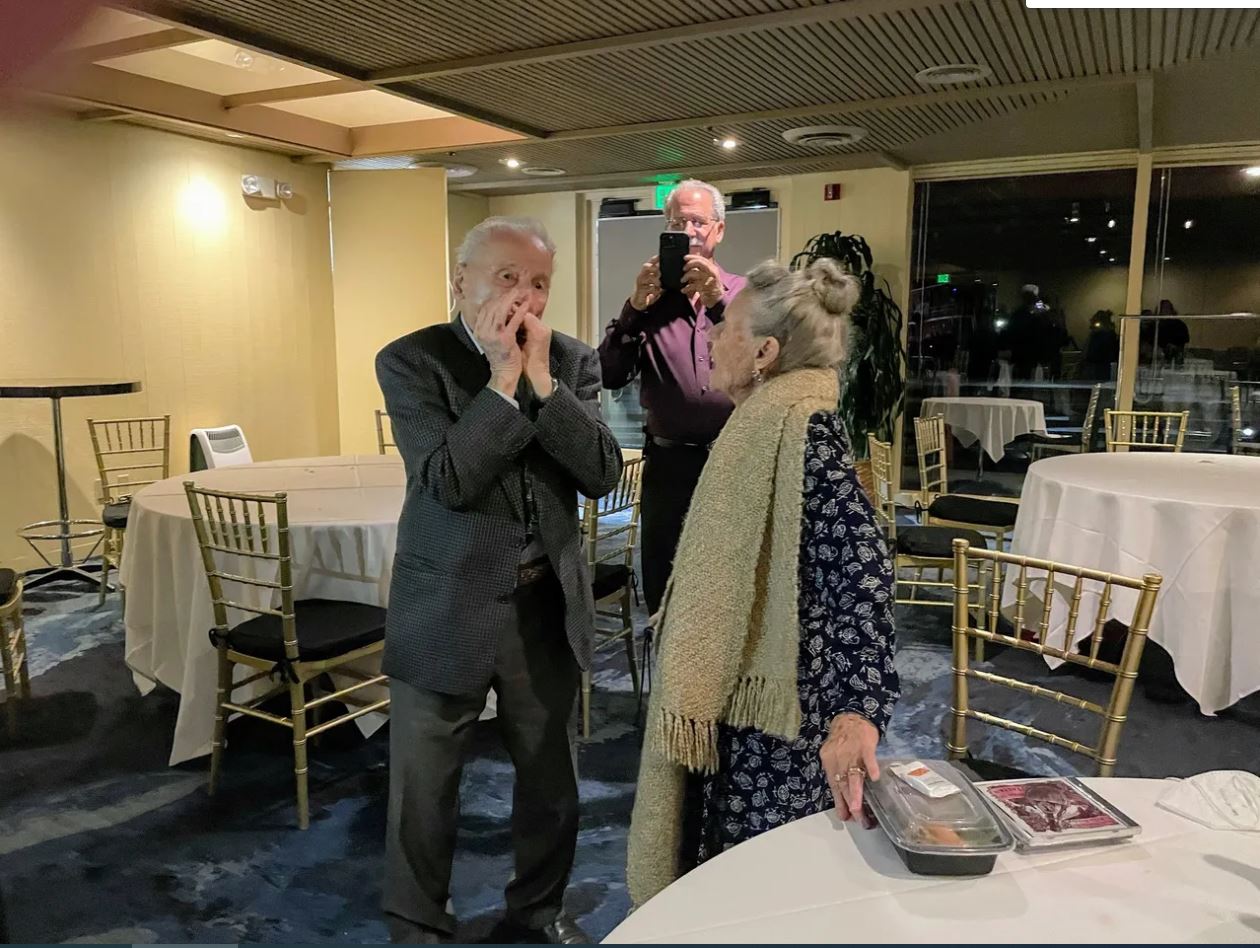
More
Swiss Abroad in San Francisco mark an emotional centenary

In compliance with the JTI standards
More: SWI swissinfo.ch certified by the Journalism Trust Initiative












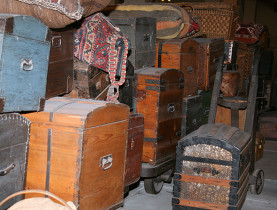
You can find an overview of ongoing debates with our journalists here . Please join us!
If you want to start a conversation about a topic raised in this article or want to report factual errors, email us at english@swissinfo.ch.